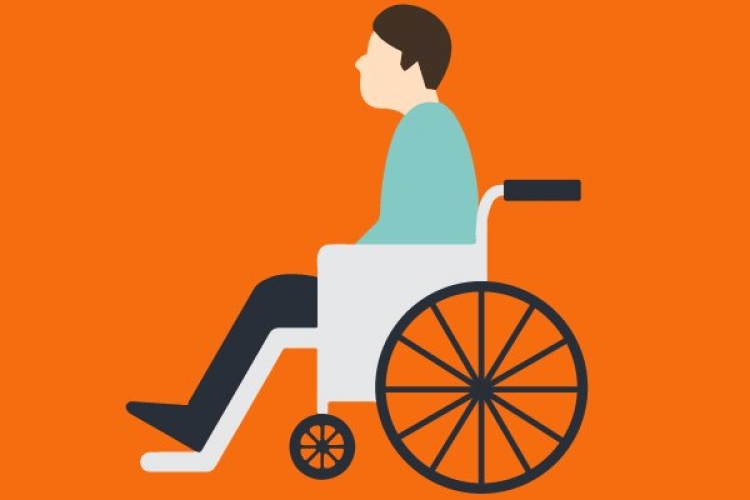Disabilities Act: States going slow on roll-out, says study
A study conducted by the Disability Rights India Foundation (DRIF) on the implementation of the Rights of Persons with Disabilities (RPWD) Act, across 24 States, has revealed that more than half have not notified the State rules, despite a significant lapse of time.
Ten States including Bihar, Chandigarh, Manipur, Meghalaya, Odisha, Telengana, Tamil Nadu and West Bengal have notified the State rules, the survey said.
ABOUT THE STUDY
- The study, which concentrated on the States’ administrative machinery with respect to the Act, found that 79.2% of the States had not constituted the funds for implementation of the RPWD Act. Among the five States to have constituted the funds, Tamil Nadu has allocated ?10 crore while Himachal Pradesh has allocated ?5 crore.
- Only Tamil Nadu has taken some action with regard to providing an increased quantum of assistance for people with disabilities in social security schemes.
- Though 62.5% of the States have appointed Commissioners for Persons with Disabilities, the progress has not been substantial. Only three States have constituted Advisory Committees, comprising of experts, to assist the State Commissioners.
- Out of the 24 States and Union Territories that responded to the study, Madhya Pradesh was ranked the highest, followed by Odisha, Meghalaya and Himachal Pradesh.
- Andaman and Nicobar Islands along with Jammu and Kashmir ranked the lowest. The national capital was ranked number 12.
- While 58.3% of the States have not notified Special Courts in the districts for trying offences under the Act, 87.5% have not appointed a Special Public Prosecutors as mandated by the law.
DISABILITY ACT
The New Act will bring our law in line with the United National Convention on the Rights of Persons with Disabilities (UNCRPD), to which India is a signatory. This will fulfill the obligations on the part of India in terms of UNCRD. Further, the new law will not only enhance the Rights and Entitlements of Divyangjan but also provide effective mechanism for ensuring their empowerment and true inclusion into the Society in a satisfactory manner.
FEATURES OF THE ACT :
1. The types of disabilities have been increased from existing 7 to 21 and the Central Government will have the power to add more types of disabilities.
2. Speech and Language Disability and Specific Learning Disability have been added for the first time. Acid Attack Victims have been included. Dwarfism, muscular dystrophy have has been indicated as separate class of specified disability. The New categories of disabilities also included three blood disorders, Thalassemia, Hemophilia and Sickle Cell disease.In addition, the Government has been authorized to notify any other category of specified disability.
3. Reservation in vacancies in government establishments has been increased from 3% to 4% for certain persons or class of persons with benchmark disability.
4. Every child with benchmark disability between the age group of 6 and 18 years shall have the right to free education.
5. District level committees will be constituted by the State Governments to address local concerns of PwDs.
6. Special Courts will be designated in each district to handle cases concerning violation of rights of PwDs.
7. Broad-based Central & State Advisory Boards on Disability are to be set up to serve as apex policy-making bodies at the Central and State level.
8. Office of Chief Commissioner and those of the State Commissioners of Persons with Disabilities has been strengthened.
9. The Act says that any person who “intentionally insults or intimidates with intent to humiliate a person with a disability in any place within public view” is punishable with imprisonment.
Areas of Concern
1. It has been largely believed that this Act is insufficient as far as “reservations” for persons with disability is concerned;
2. Some people have raised questions about the ‘loose language’ that has been used in provisions relating to discrimination and guardianship;
3. Also, in spite of the number of disabilities covered under this Act has been increased to 21 against the previous Act of 1995, yet many disabilities are yet to be covered under the ambit of this Act.
For persons with disability, such a piece of legislation happens to be a boon and no less. This Act deals with issues relating to the rights of persons with disabilities comprehensively. It also mandates the Government to perform its duties in the most diligent manner and make schemes and programmes towards the welfare of the community. However, this Act certainly is a step in that direction.


 IAS-2026 - OPTIONAL / GEOGRAPHY / PUBLIC ADMINISTRATION / SOCIOLOGY / ANTHROPOLOGY / ORIENTATION ON 03 & 04-10-2025
IAS-2026 - OPTIONAL / GEOGRAPHY / PUBLIC ADMINISTRATION / SOCIOLOGY / ANTHROPOLOGY / ORIENTATION ON 03 & 04-10-2025 